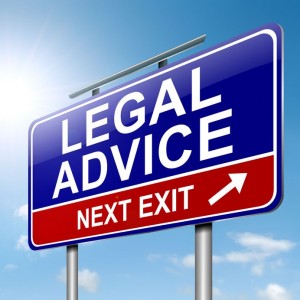
When you are arrested, it is crucial to assert your rights calmly and clearly.
When you are arrested, you are taken into custody. This means that you are not free to leave the scene. Without being arrested, you can be detained, however, or held for questioning for a short time if a police officer or other person believes you may be involved in a crime. For example, an officer may detain you if you are carrying a large box near a burglary site. You can also be detained by storekeepers if they suspect you have stolen something.
When you are detained and arrested in the United States, several constitutional rights protect you. These legal rights are designed to ensure fair treatment and due process. Here are your key rights, including your right to an attorney:
- Right to Remain Silent: Under the Fifth Amendment, you have the right to remain silent to avoid self-incrimination. You are not obligated to answer any questions from law enforcement officers, and anything you say can be used against you in court. This is part of your Miranda rights, which must be read to you upon arrest.
- Right to an Attorney: The Sixth Amendment guarantees your right to legal representation. If you cannot afford an attorney, one will be provided for you at no cost. This right ensures you have legal counsel during interrogations and throughout the criminal process to protect your rights and mount a defense.
- Right to be Informed of Charges: The Sixth Amendment also ensures that you must be informed of the nature and cause of the accusations against you. This means you must be told why you are being detained and what specific charges you face.
- Right to a Speedy and Public Trial: You have the right to a speedy trial, ensuring you are not held for an extended period without a trial. Additionally, your trial must be public, promoting transparency and fairness.
- Right to Due Process: The Fourteenth Amendment guarantees due process, meaning you are entitled to fair procedures and legal processes before being deprived of life, liberty, or property.
- Right to a Fair Trial: This encompasses several rights, including the right to an impartial jury, the right to confront witnesses against you, and the right to have compulsory process for obtaining witnesses in your favor.
- Protection Against Unreasonable Searches and Seizures: Under the Fourth Amendment, you are protected from unreasonable searches and seizures. Law enforcement generally needs a warrant to search your property, although there are some exceptions.
- Right to Bail: The Eighth Amendment ensures that bail should not be excessively high. While not a guarantee of release, this right means bail should be set at a reasonable amount considering the circumstances of your case.
When you are arrested, it is crucial to assert your rights calmly and clearly. For example, you can state, “I am invoking my right to remain silent, and I would like to speak to an attorney.” This ensures law enforcement officials are aware that you are exercising your constitutional rights.
Whether you are arrested or detained, you do not have to answer any questions except to give your name and address and show some identification if requested.
What Rights do I Have? Whether you are an adult citizen or non-citizen, you have certain rights if you are arrested. Before the law enforcement officer questions you, he or she should tell you that:
You have the right to remain silent. Anything you say may be used against you. You have a right to have a criminal defense lawyer present while you are questioned. If you cannot afford a criminal defense attorney, one will be appointed for you.
These are your “Miranda” rights, guaranteed by the U.S. Constitution. If you are not given these warnings, your criminal defense lawyer can ask that any statements you made to the police not be used against you in court. But this does not necessarily mean that your case will be dismissed. This does not apply if you volunteer information without being questioned by the police.
Once I am told my Rights, can I be Arrested?
You can be questioned, without a lawyer present, only if you voluntarily give up your rights and if you understand what you are giving up. If you agree to the questioning, then change your mind, questioning must stop as soon as you say that you want a lawyer. If the questioning continues after you request a lawyer and you continue to talk, your answers can be used against you if you testify to something different.
You may be required to give certain physical evidence. For example, if you are suspected of driving under the influence of alcohol you may be requested to take a test to measure the amount of alcohol in your system. If you refuse to take the test, your driver’s license will be suspended and the refusal will be used against you in court.
Once you are booked, meaning your arrest is written into official police records and you are finger printed and photographed, you have a right to make and complete three telephone calls that are free within the local dialing area.
When Should I see a Lawyer?
If you are arrested for a crime, particularly a serious one, you should contact a lawyer as soon as possible. He or she has a better sense of what you should and should not say to law enforcement officers to avoid being misinterpreted or misunderstood. The lawyer also can advise you or your
